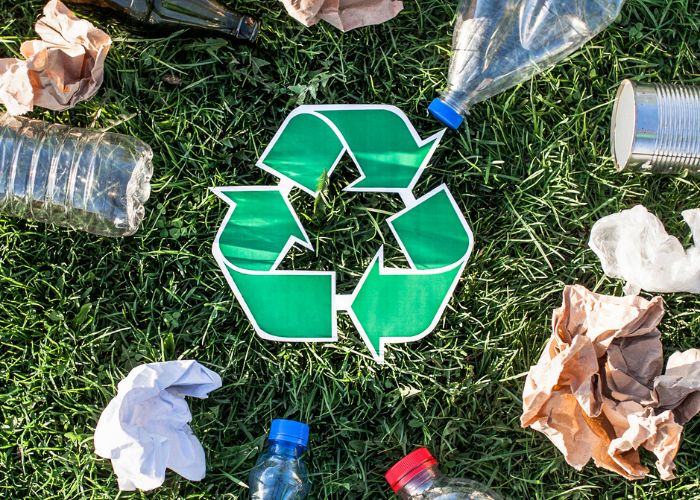MADRID – Waste must become the exception in Spain and recycling is the rule. However, a lot still needs to be done in Spain for this to be true. Much has been swept under the rug so far.
Since the Waste Management Act (Ley de residuos y suelos contaminados), which was passed in April and comes into full force next year, restaurants must offer tap water for free to avoid the many plastic water bottles. According to Borja Mateu of the INESCOP research centre in Alicante, who also runs a small recycling plant, there is a clear gap between expectations and reality.
Tap water
In many places in Spain, the tap water tastes like chemicals and people are not used to drinking tap it. However, according to the latest data from 2020 from the Ministry of Health, 98.5% of tap water in Spain is suitable for consumption. It meets all quality standards set by the European Union. Mind you, this is about tap water. Water that flows from the taps in built-up areas of villages and towns. However, Spain has been reprimanded several times by the European Union. This is for its inadequate water treatment and overdue maintenance of water pipes and sewers in many coastal towns.
See also: Is the tap water in Spain safe to drink?
According to Greenpeace, Spain is the fifth largest producer of disposable bottles in the EU. Only a small part of it is recycled. The Global Waste Index 2022 shows that a large country like Germany, with 632 kilograms (kg) per capita, has much more waste than Spain (455 kg), but recycles half of it. The Spanish recycling rate is only 86 kg per capita.
Single use plastic
A new tax on single-use plastic packaging and another on waste going to landfills and incineration aims to reduce waste production in Spain by 15% by 2030 compared to 2010 levels.
See also: Prices in Spain even higher due to new plastic law
The new waste law also prohibits the marketing of single-use plastic products. This includes cosmetics and cleaning products containing microplastics, and those that destroy or dispose of excess non-perishable products such as textiles, toys or electrical appliances.
The law also requires restaurants and supermarkets to keep their waste to a minimum. Leftover food should be donated or processed into animal feed. The restaurant guest has the right to take home any uneaten food neatly wrapped. But in other areas, the infrastructure for such systems is lacking. In Spain, unlike other European countries, there is not even a general deposit system for beverage bottles.
With Inditex and Mango, Spain is also home to two giants in the global fast fashion industry. In every city centre, young people queue every day at chains such as Primark, Bershka, Mango, Zara and Stradivarius for dirt-cheap clothes, which often end up in the trash a few months later.
Laws and reality
In many cities in the morning, there is a lot of waste, such as cigarette butts, plastic bottles and beer cans, on children’s playgrounds and outlying squares or near walls. Partying young people have left this rubbish behind. Even though it is forbidden to drink alcohol in public and to attend so-called botellones. However, each time after a few hours everything is gone again. Neatly cleaned up by the municipal cleaning service. Spaniards find tidiness very important but feel less responsible for their mess in public spaces, as someone else will clean it up.
The cities in Spain are remarkably clean. The newspaper El Diario calculated that in a city like Madrid, spending on waste collection and urban cleaning is now 70% higher than before the pandemic. “It will take some time to educate Spanish society,” Mateu fears.


